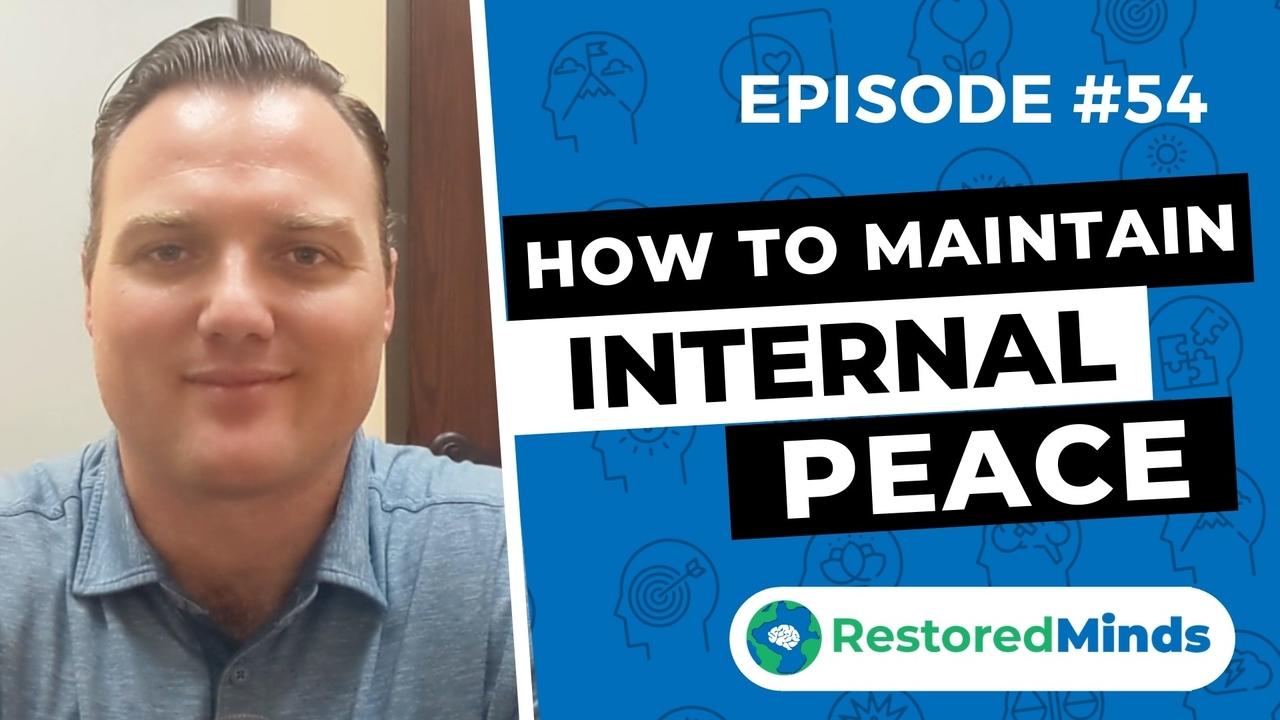How to Maintain Internal Peace
Nov 04, 2020
The Illusion of Control
One of the first steps in maintaining internal peace is recognizing that you're not always in control of external events. For instance, as I record this, it's the eve of the 2020 presidential election. Many people are emotionally invested in their preferred candidate winning, which can lead to emotional disruption if the outcome isn't favorable.
Emotional Attachment and Its Pitfalls
It's not wrong to have preferences or cast your vote, but emotional attachment to outcomes beyond your control can lead to internal chaos. This emotional disruption can manifest in destructive behaviors, affecting your relationships, work, and overall mental health.
The Mirror Effect: External World Reflects Internal World
Your external world often mirrors your internal state. If you're internally balanced, your interactions with the world will be more harmonious. Conversely, if you're in internal chaos, you'll likely experience external chaos.
Managing Internal Well-being
The key to breaking this cycle lies in focusing on what you can control: your internal world. This includes your perceptions, beliefs, and emotional reactions. Once you master your internal state, the external world becomes less significant in affecting your peace of mind.
Practical Steps to Achieve Internal Peace
So how can you achieve and maintain this internal peace? Here are some actionable steps:
1. Mindfulness and Meditation
These practices help you become more aware of your thoughts and emotions, allowing you to manage them better.
2. Emotional Detachment from Outcomes
Understand that it's okay for things not to go as planned. Detaching emotionally from specific outcomes gives you the freedom to remain balanced regardless of external events.
3. Self-reflection
Take time to ask yourself why certain events disrupt you emotionally. Understanding the root cause can help you manage your reactions better.
4. Focus on the Present
Often, we get emotionally disrupted by worrying about future events that might never happen. Staying grounded in the present moment can significantly reduce anxiety.
Ripple Effect of Positive Internal Peace
Achieving internal peace isn't just beneficial for you; it has a ripple effect on those around you. Your emotional well-being can positively impact your family, friends, and even coworkers. This creates a cycle of positivity that extends far beyond your immediate circle.
Conclusion
As we navigate through turbulent times, maintaining internal peace is crucial. By focusing on what you can control—your internal state—you can create a more balanced and peaceful life, unaffected by external chaos.


